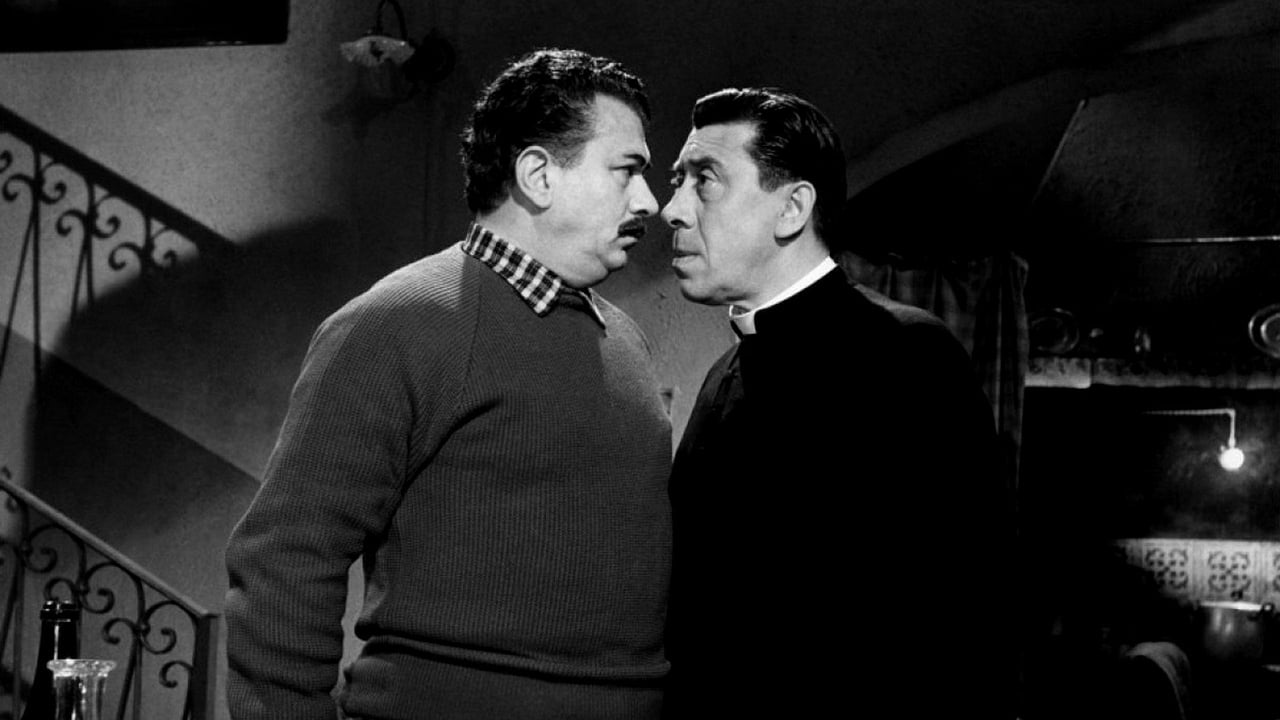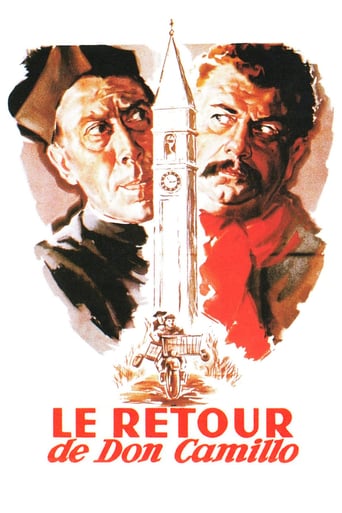



Well Deserved Praise
Am I Missing Something?
Great example of an old-fashioned, pure-at-heart escapist event movie that doesn't pretend to be anything that it's not and has boat loads of fun being its own ludicrous self.
View MoreMostly, the movie is committed to the value of a good time.
View MoreThis is another excellent film in Duvivier's Don Camillo series. A sequel to the first film, it resumes at the exact moment its predecessor left off, with the obstinate priest heading into exile on the train.There are a few less humorous moments in this sequel and the pacing is a little problematic at times with several slow periods but the film overcomes this as its builds towards its conclusion.There is much more symbolism in this entry. As Don Camillo enters his exile, he is also faced with a spiritual drought as Jesus seemingly falls silent. Camillo's exile is on a mountain, a traditional place for seeking communion with God, yet here God seems to be silent. The scene in which Don struggles up the mountain track in the rain with the crucifix is possibly the most powerful in series.The battle of wits with the mayor is a little laboured this time but there are still many, many wonderful comic moments, most notably those involving the elderly villager who repeatedly refuses to die.Despite a few mild criticisms, this film again comes extremely highly recommended for the whole family. The warmth and humour negate any potential for didacticism. Instead, we have one of the classic characters from world literature brought perfectly to life by Fernandel in a wonderful comedy classic that will be loved by Christians of all denominations.
View MoreSequels don't often deliver though people who should know better keep doing them - see Claude Lelouch and the sequel to A Man And A Woman for example - but one almost foolproof way to ensure they come off is to entrust them to an expert like Julien Duvivier, who manages effortlessly to continue the episodic life of that wonderful contradiction in terms the childlike strong-arm priest Don Camillo who finds nothing strange in chatting with God. He begins the film in exile but we know it's not going to last because Peppone needs Don Camillo like Laurel needs Hardy and so the stage is set for more conflicts and Lessons In Life Andy Hardy style with Peppone in the Mickey Rooney role and Don Camillo standing in for Lewis Stone. A more than satisfying film enhanced by the black and white photography.
View MoreVery good episode, like all the others to be honest, but this one stands out for a deep and strong message, religious and not.In the first part, the forced retreat of don Camillo is a very intense piece of cinema. His personal "via crucis" up to the mountain, his dialogue with God (the conscience's speech ?) teach to us the real value of a redemption. Camillo's exile, thank God will last little time (Peppone knows anything ?), full of energies to fight again. For the glorious bell Gertrude fallen by the belfry, the tragic Po's flood, a singular battle of the clocks, the barbaric life in the boarding-schools and the last fascists' ardors.Everybody having at least 60 years in Italy remembers the big Po river's flood (my parents told me plenty about it) in early 50s. These kind of movies are able to maintain living the records of both happy and tragic events that marked our history through the following generations. An epoch desperately needful of a common identity (and then the politics!) but basically already related with the simple, daily things.Fernandel and Gino Cervi couldn't be more terrific in their roles. Like Fernandel was a perfect don Camillo, Gino Cervi was either a perfect Peppone, or Maigret in the french TV-series taken by Simenon's novels. Two underrated actors that inaugurated a prolific age of Italy/France co-productions.
View MoreAt home we never tire of this, perhaps the best of the Don Camillo series. The characters are so perfectly drawn and the black and white photography is much more dramatic than colour! It gives a very true-to-life picture of the social and political scene in post-war Italy, with just enough exaggeration to have the spectators rolling in the aisles.
View More